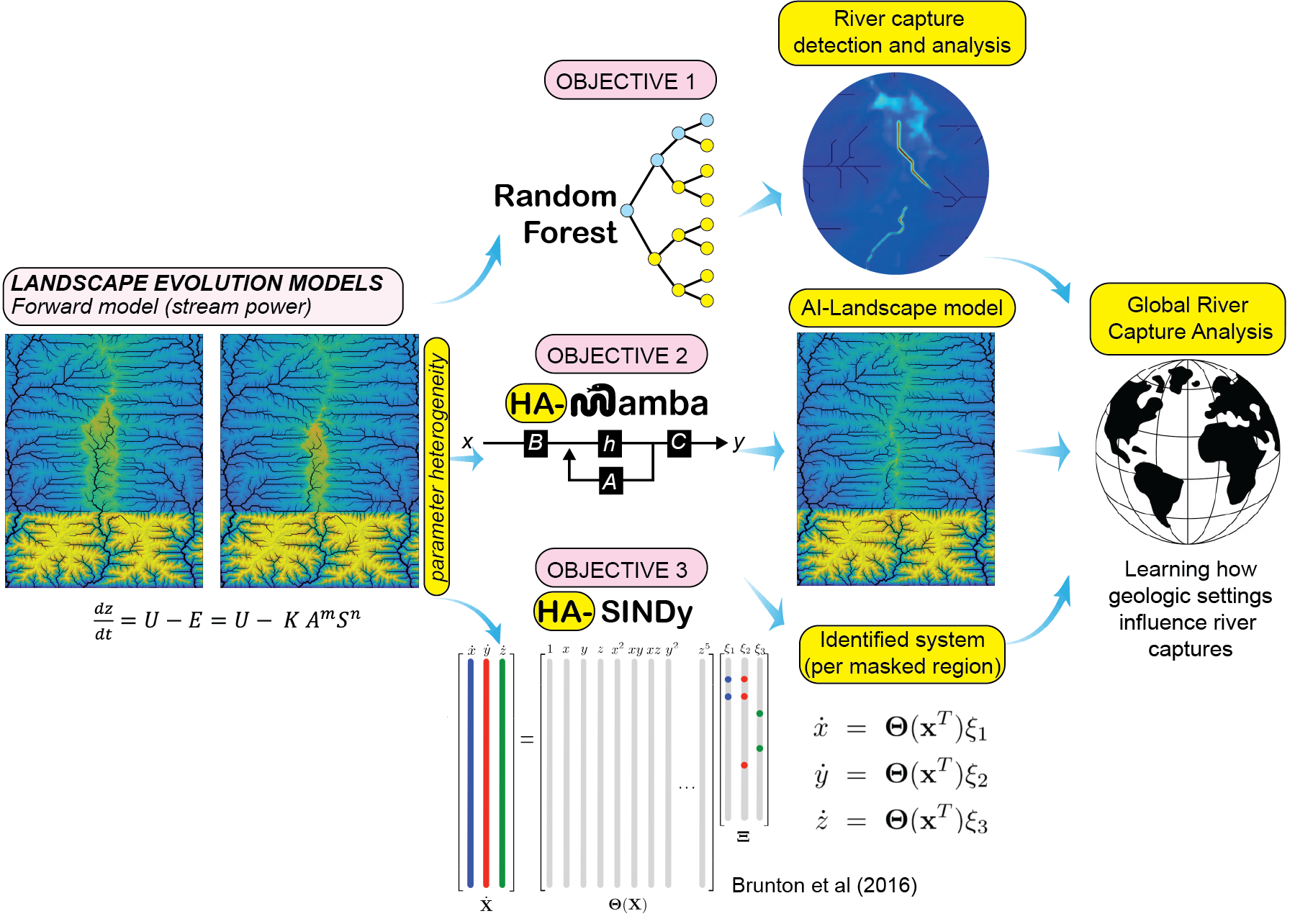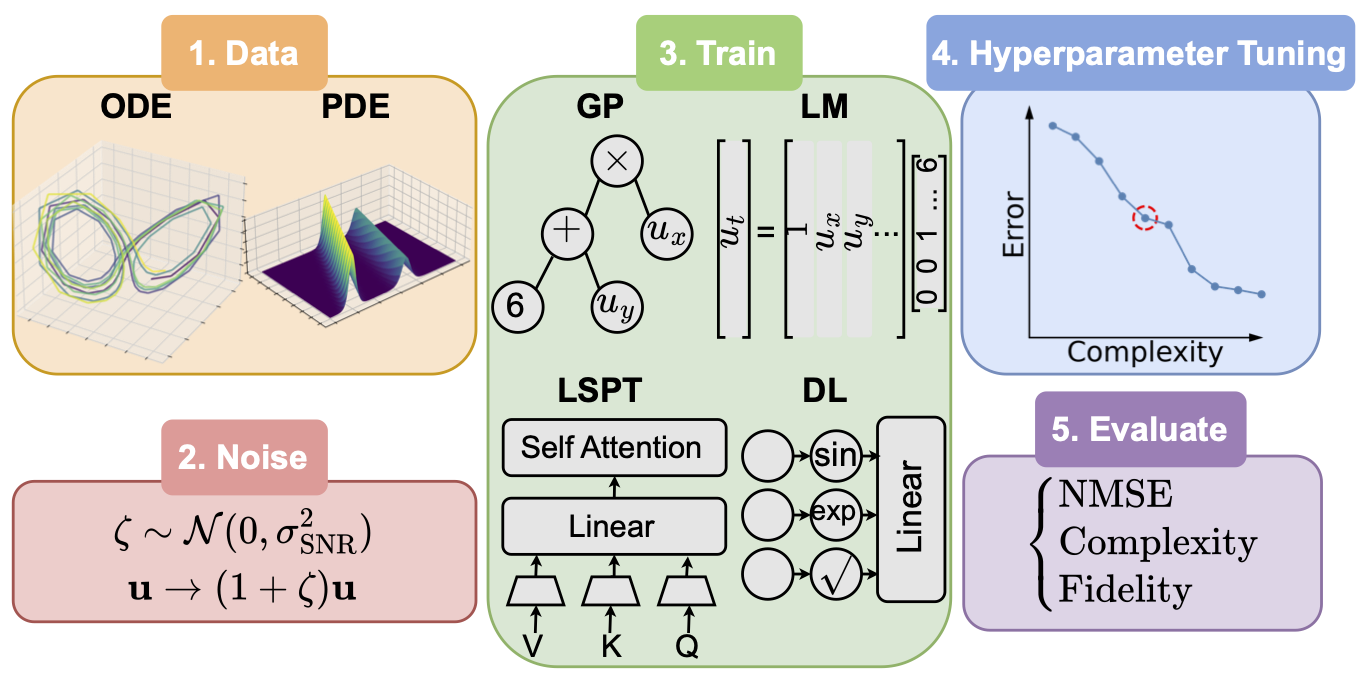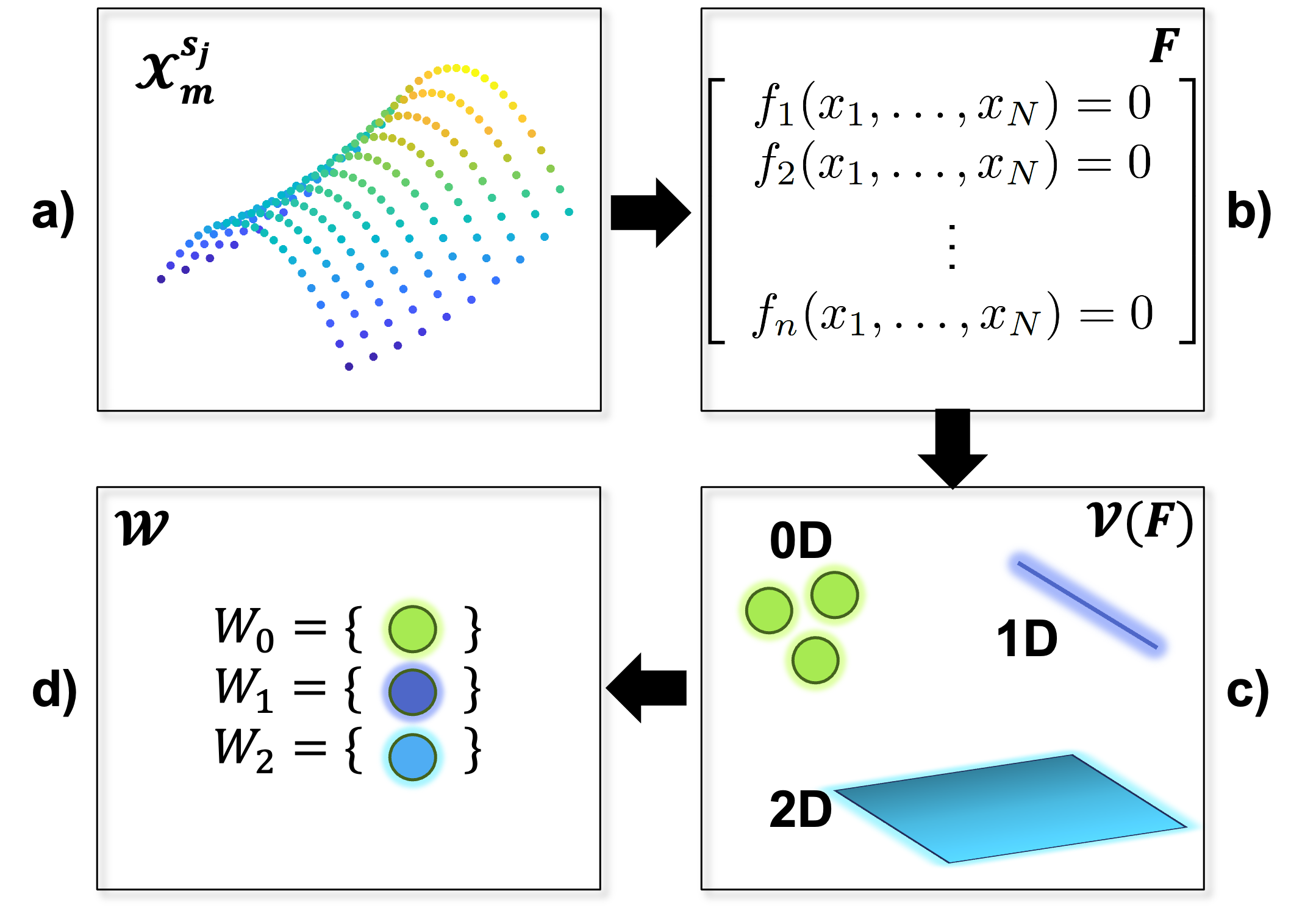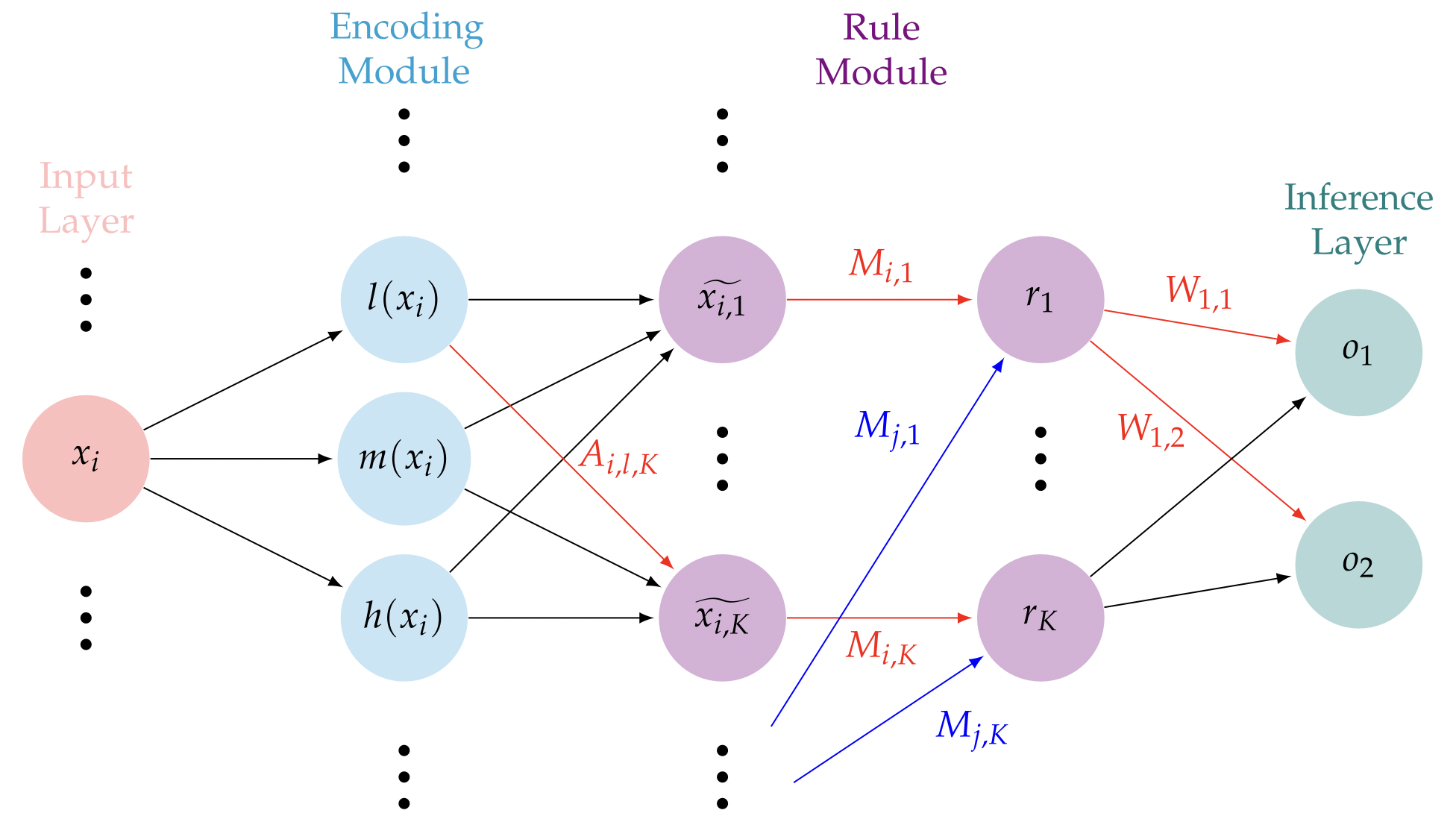Research Focus
The Interdisciplinary Data Science Lab (IDSL) works to solve problems in biomedical informatics and computer science by developing novel artificial intelligence/machine learning methods that can leverage a problem’s underlying morphology and work within its operational limitations.
Most recently, we have focused on the development of Nonlinear Algebraic Data Analysis, which leverages methodologies from tensor analysis, numerical algebraic geometry, deep neural networks, and invariant theory. The application of nonlinear algebraic methods to data analysis has the potential to more accurately and faithfully model complex, real-world data.
Research Areas

River capture, a process of river reorganization, promotes rerouting of water, sediments, and nutrients on the Earth’s surface over geologic timescales. Developing new machine learning methods creates an opportunity to fill extant knowledge gaps in river capture distribution/modeling along with transferrable AI-based tools for geomorphologic analysis. The goal of this project is to develop heterogeneity-aware deep learning models capable of learning, simulating, and discovering landscape evolution models with spatial and temporal variations in boundary conditions (i.e., rock uplift, bedrock lithology, rainfall distribution).

Many real-world phenomena arising in engineering, biomedicine, and finance can be modeled as nonlinear dynamical systems. Governing equations for such systems have typically been discovered by utilizing expert domain knowledge combined with experimental data. Our current era of high-dimensional and large-scale experimental data has motivated the need to develop tools that can accelerate the scientific discovery process. Data-driven model discovery (MD) aims to use measurement data and machine algorithms to infer interpretable dynamical system models.

New methods in algebraic geometry and machine learning create an opportunity for better capturing and analyzing the progression of chronic disease via heterogenous, longitudinal data, thus enhancing clinical decision making. The goal of this project is to develop novel computational methods to analyze these low-density multimodal time series data, which arise frequently in medical informatics. Such analyses can uncover patient trajectories that describe individualized progressions through disease stages over time.

Many types of data naturally occur as higher dimensional arrays, or tensors. However, problems that are easily tractable for matrices (two dimensional tensors), such as determining tensor rank or calculating the spectral norm, become NP-hard. We have been developing novel methods for tensor analysis and utilizing them for tensor decomposition, classification, and dimensionality reduction tasks.

While deep learning and other general-purpose ML methods have been successful in many domains, there remain limitations that prevent such techniques from achieving sufficient performance in a number of applications. We have been developing new AI/ML techniques that can achieve high performance in domains with insufficient data, that can incorporate domain knowledge, that handle asynchronous data availability, and can leverage intrinsic data structures and temporal relationships.

For many diseases and illnesses, the analysis of single data modalities such as images or EHR alone is insufficient - only the integration and processing of all salient sources of information can form an accurate model and generate reliable clinical recommendations. Working alongside our clinical colleagues we have utilized this multimodal approach to produce decision support systems for a broad spectrum of illnesses: cancer, traumatic brain injury, diabetic foot ulcers, fibromyalgia, and inflammatory bowel disease.